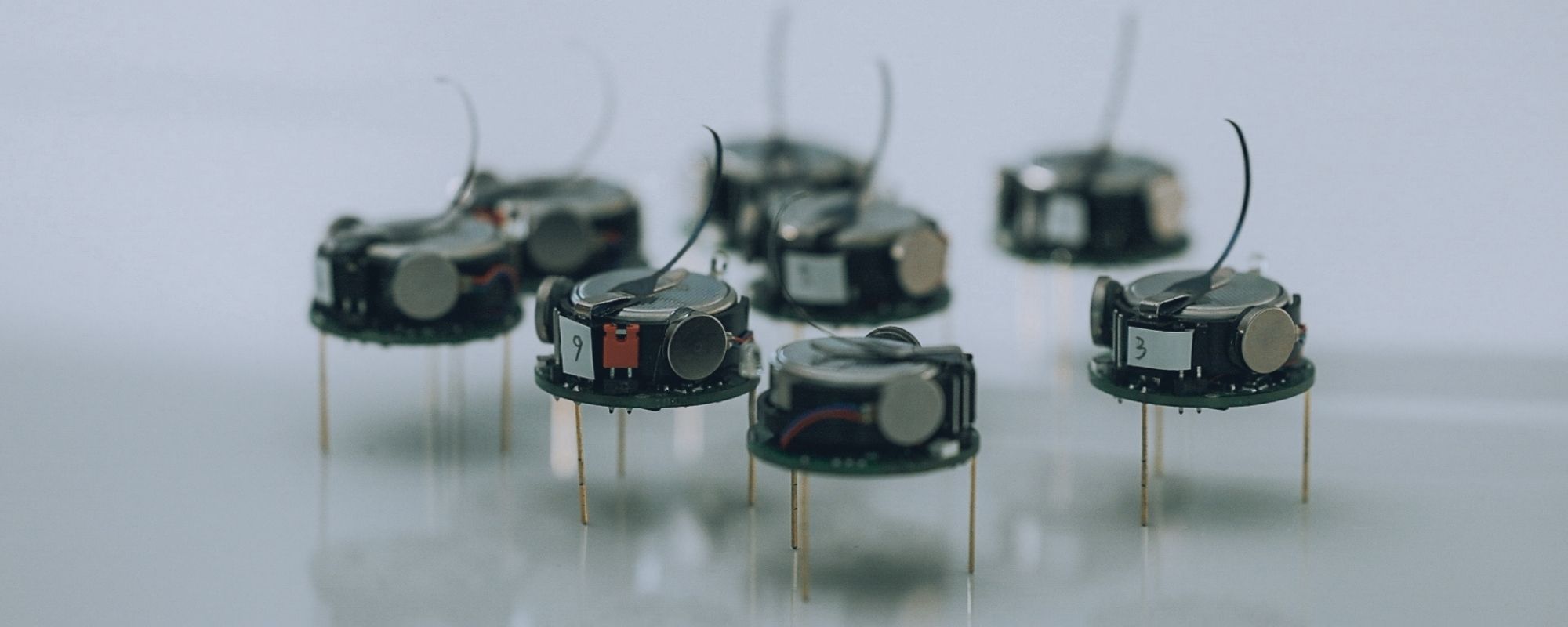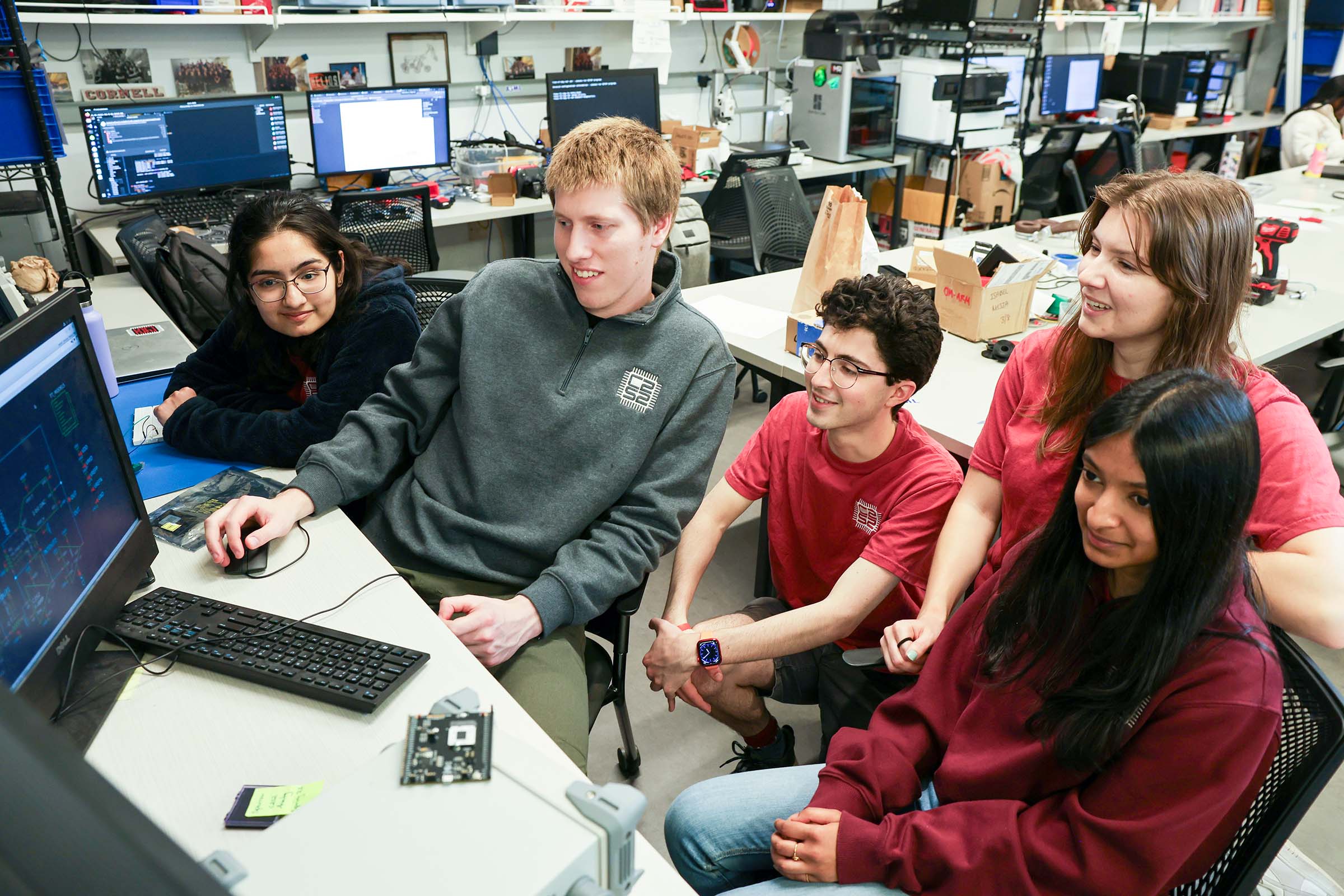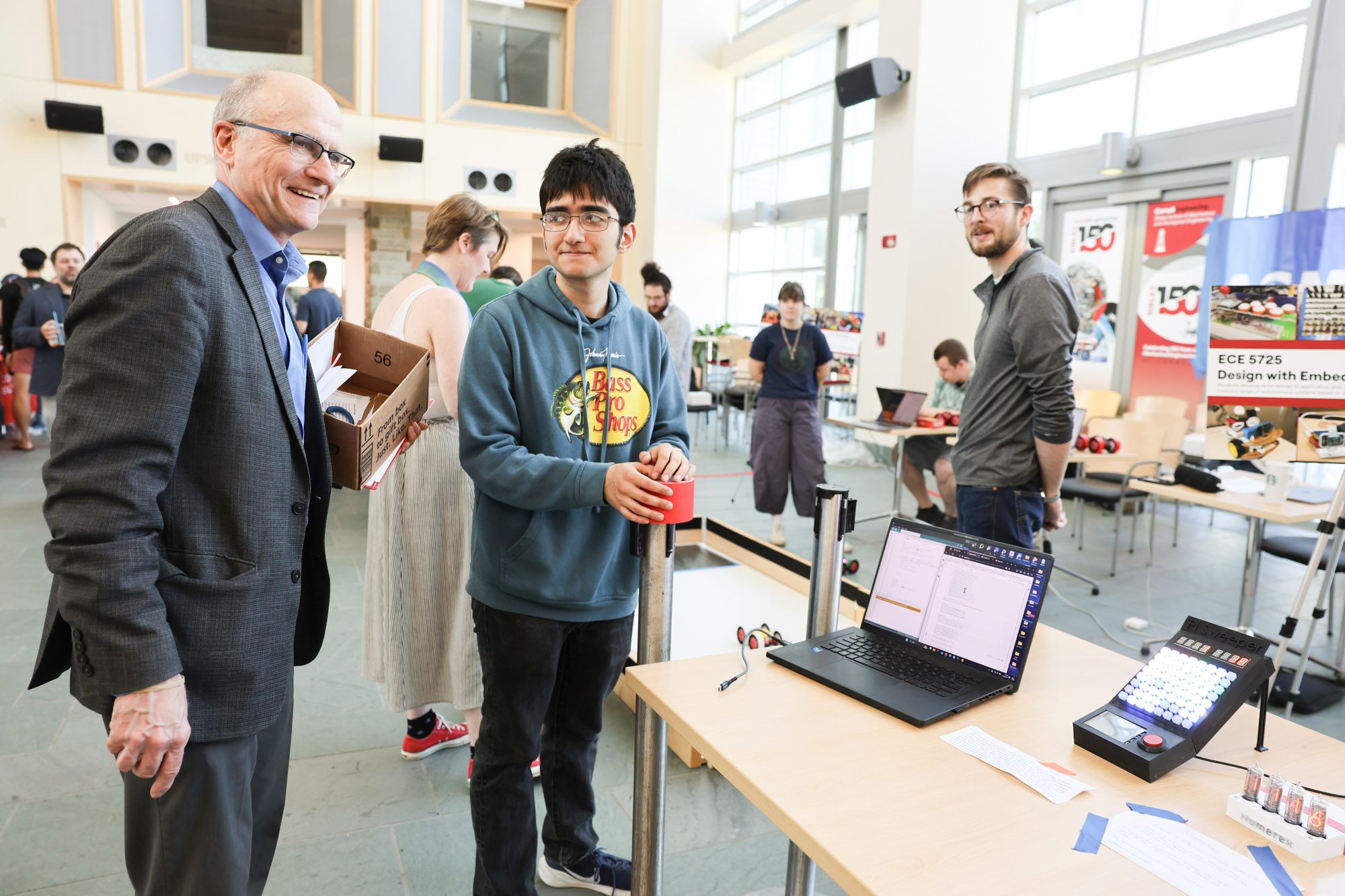Shape your future with a program designed for flexibility and innovation. Our Ph.D. program offers you the freedom to create a personalized curriculum in collaboration with your advisor and special committee, tailored to your unique interests and goals. Gain advanced training in cutting-edge technology and engineering design while diving deep into areas like power and energy, bioelectrical engineering, computer architecture, imaging, nanotechnology, photonics, neuroscience, and computing.
The Ph.D. program is intended to train students for leadership positions in teaching and research. Entering students are admitted directly to the Ph.D. program; a Master’s Degree is not a requirement for admission. Before doctoral degree candidates begin the second year of study, they must take a Qualifying Examination, consisting of Subject Area Examinations that are administered by the ECE Faculty.

Research and Study Opportunities
-
Signals, systems, learning and control
Communications, networks, cyber-physical systems, energy conversion and power systems, biological and medical systems; coding and information theory, machine learning and statistical inference, adaptive control, image and video processing and compression.
-
Computer engineering and robotics
Computer architecture, computer systems, parallel and distributed processing, cloud computing, embedded systems, and computer networks; VLSI design, hardware verification, CAD, and simulation; robotics, embodied computation, hardware/software co-design, and micro robotics.
-
Plasma physics, space science and engineering, and electromagnetics
Upper atmosphere, ionospheric and magnetospheric science, radar, satellites, and sounding rockets; fusion, solar system, and fundamental plasmas; pulsed power, electron and ion beams, and plasma radiation; plasma fabrication; electromagnetics.
-
Solid-state electronics and optoelectronics
Electronic, magnetic and optoelectronic materials and devices; devices, circuits, and system integration; beyond-CMOS devices and circuits; power electronics; photonics; microwave and millimeter-wave devices and systems; sensors and actuators, micro- and nanoelectromechanical systems.
Contact Us
-
Assistant Director of Graduate Studies
Eric Laine
Phillips Hall, Room 223
Ithaca, NY
ece-phd@cornell.edu


